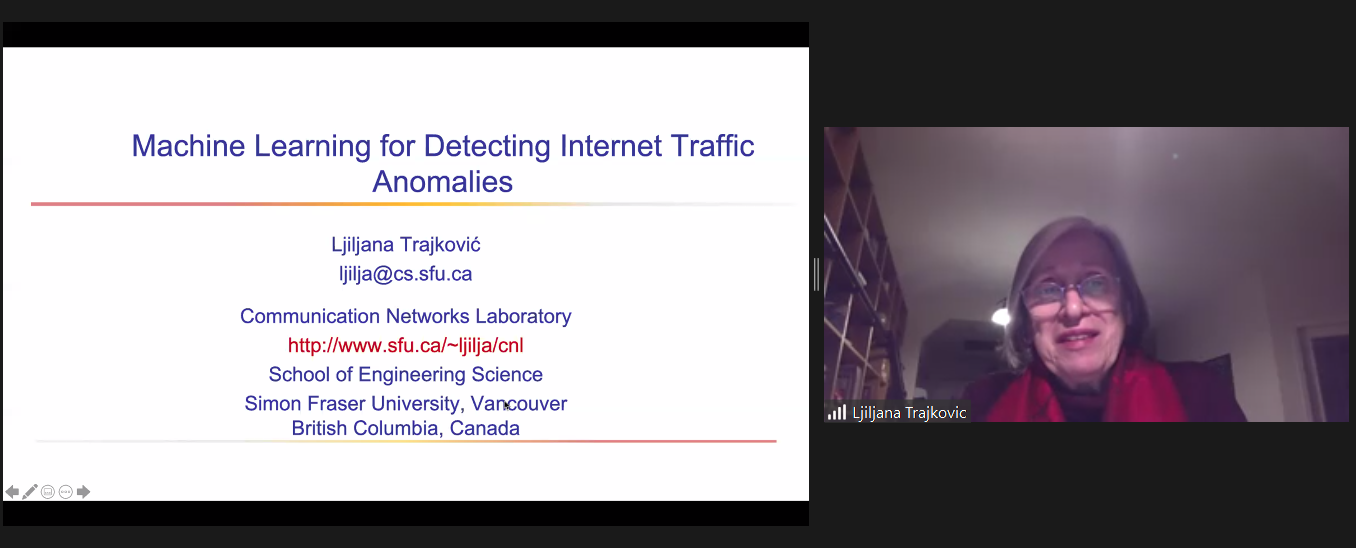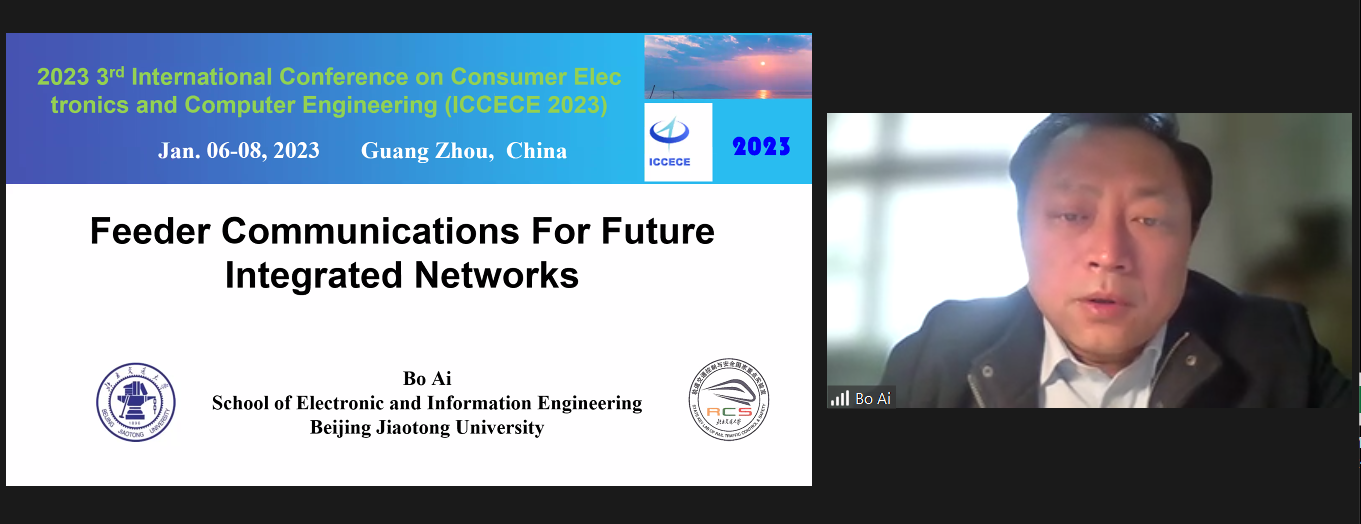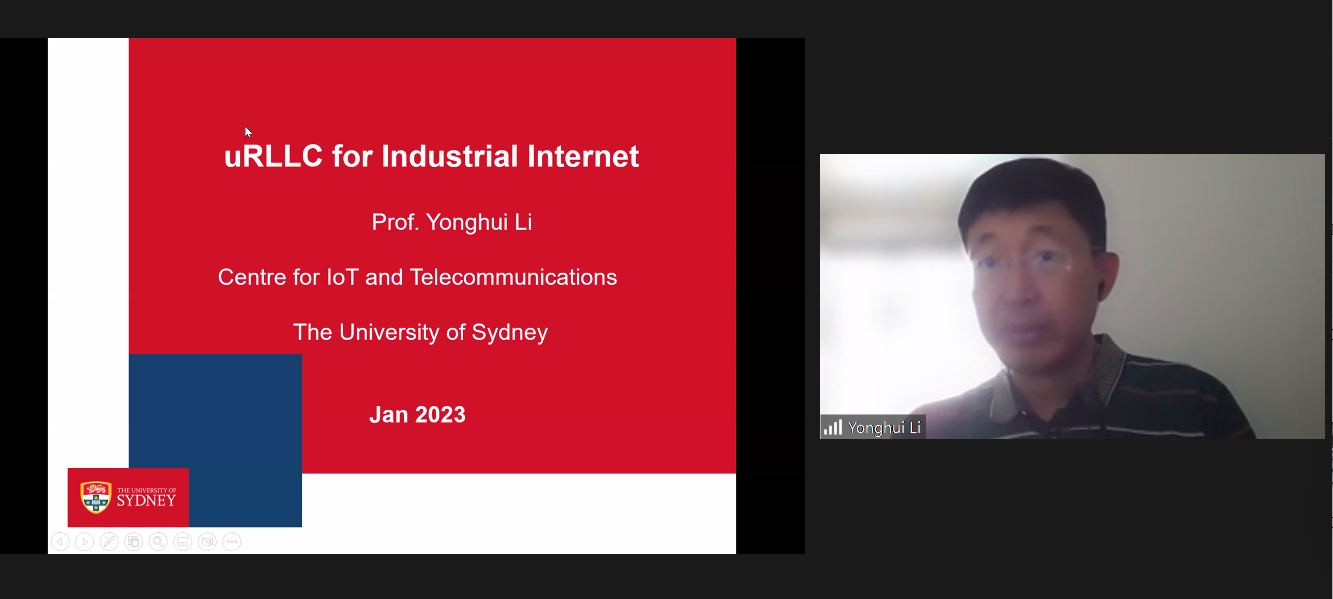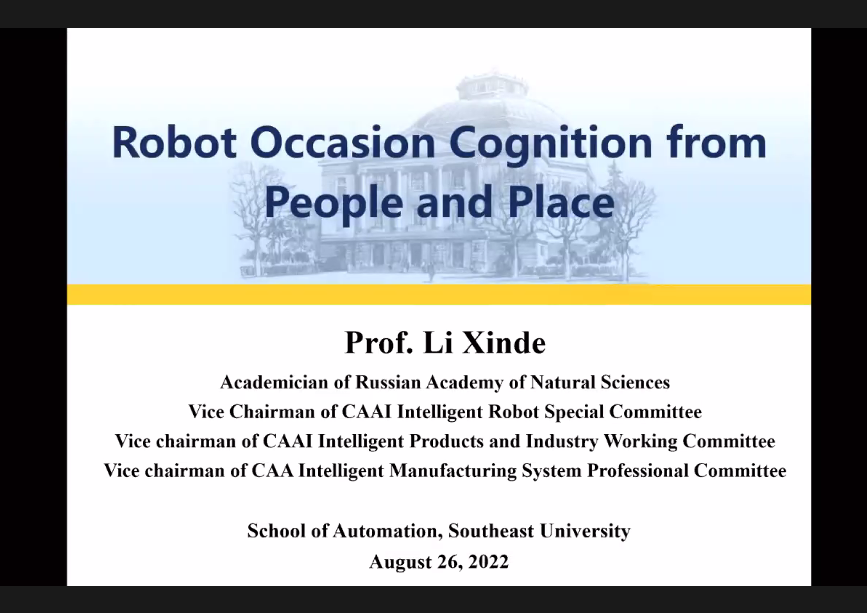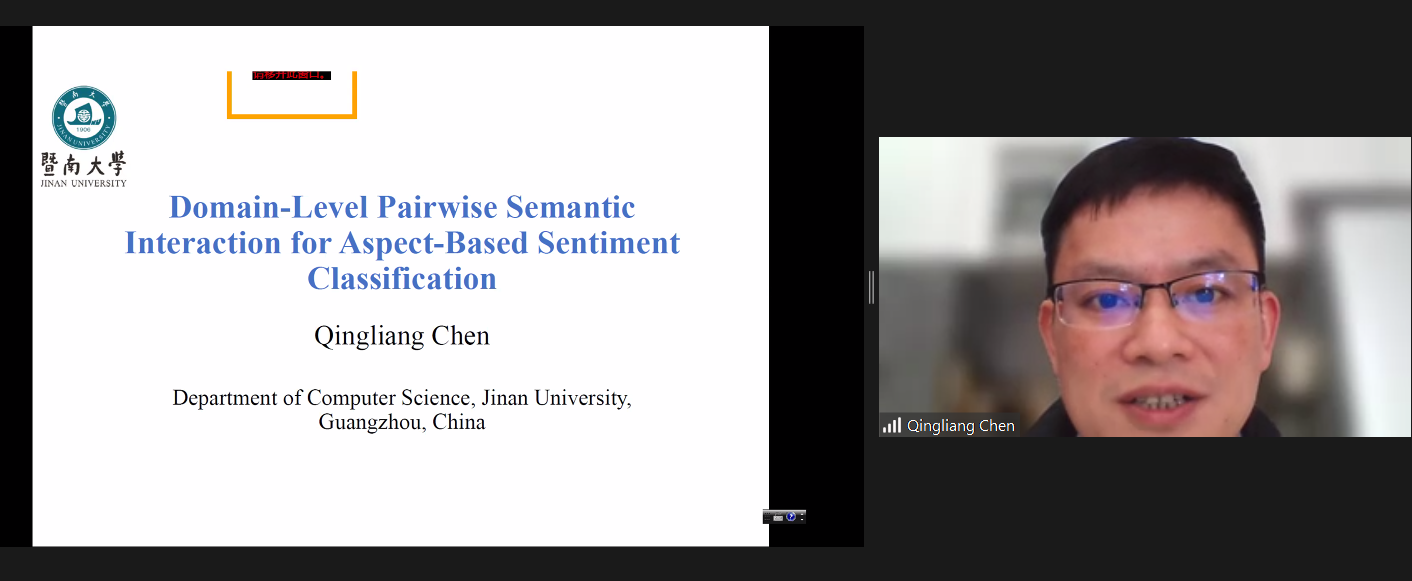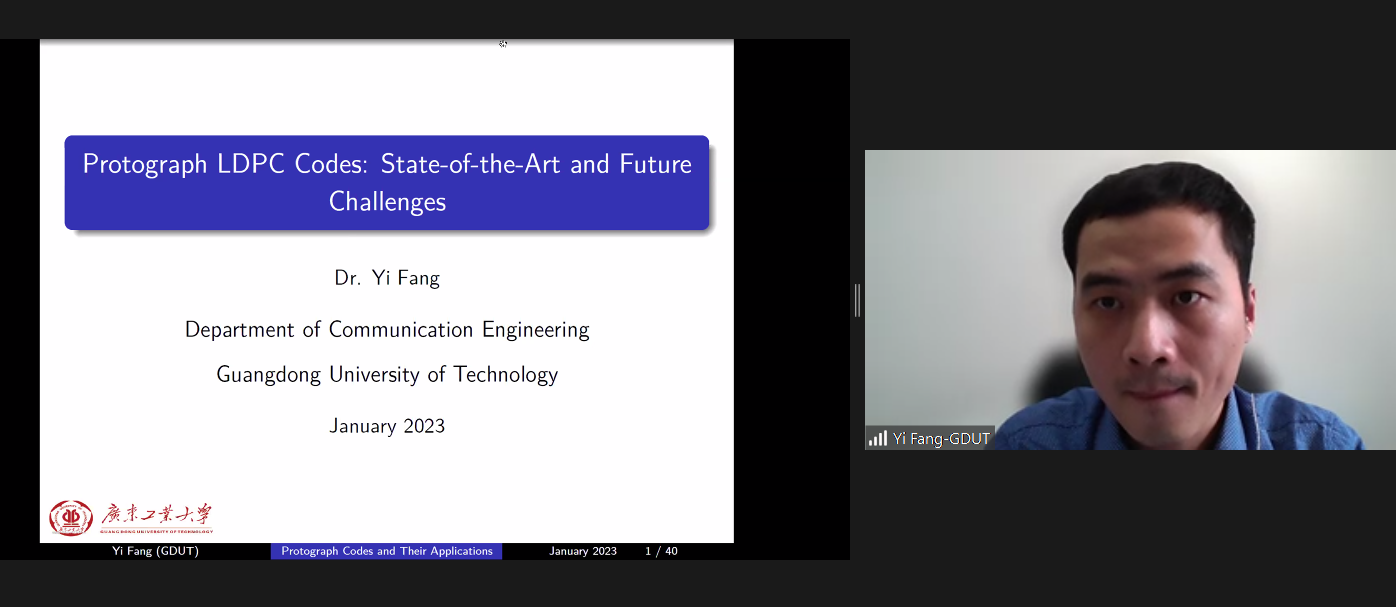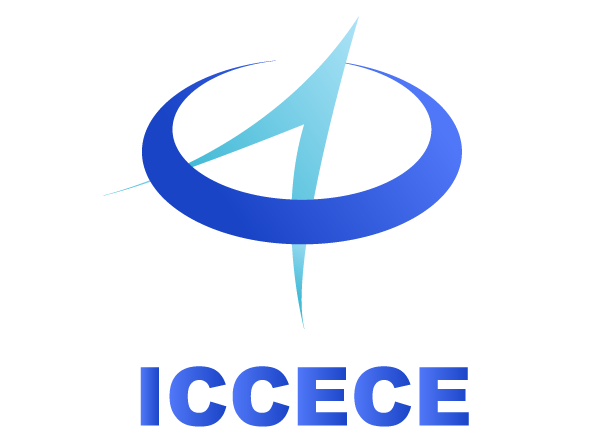
2023 3rd International Conference on Consumer Electronics and Computer Engineering (ICCECE 2023) has been successfully held on January 06-08, 2023, in Guangzhou, China.
There were about 300 delegates attended the offline and online conference, several experts in related fields were invited to give keynote speeches. The in-depth discussions among the attendees effectively advanced the academic exchange.
Group Photo |
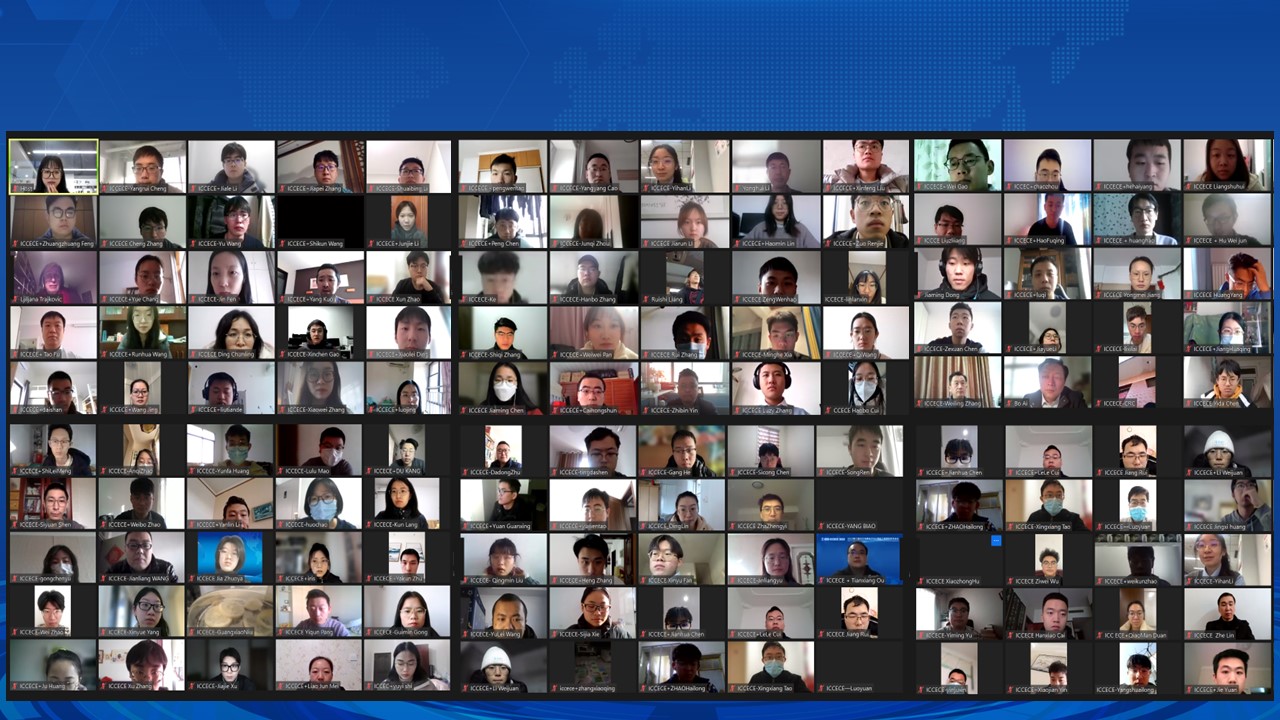
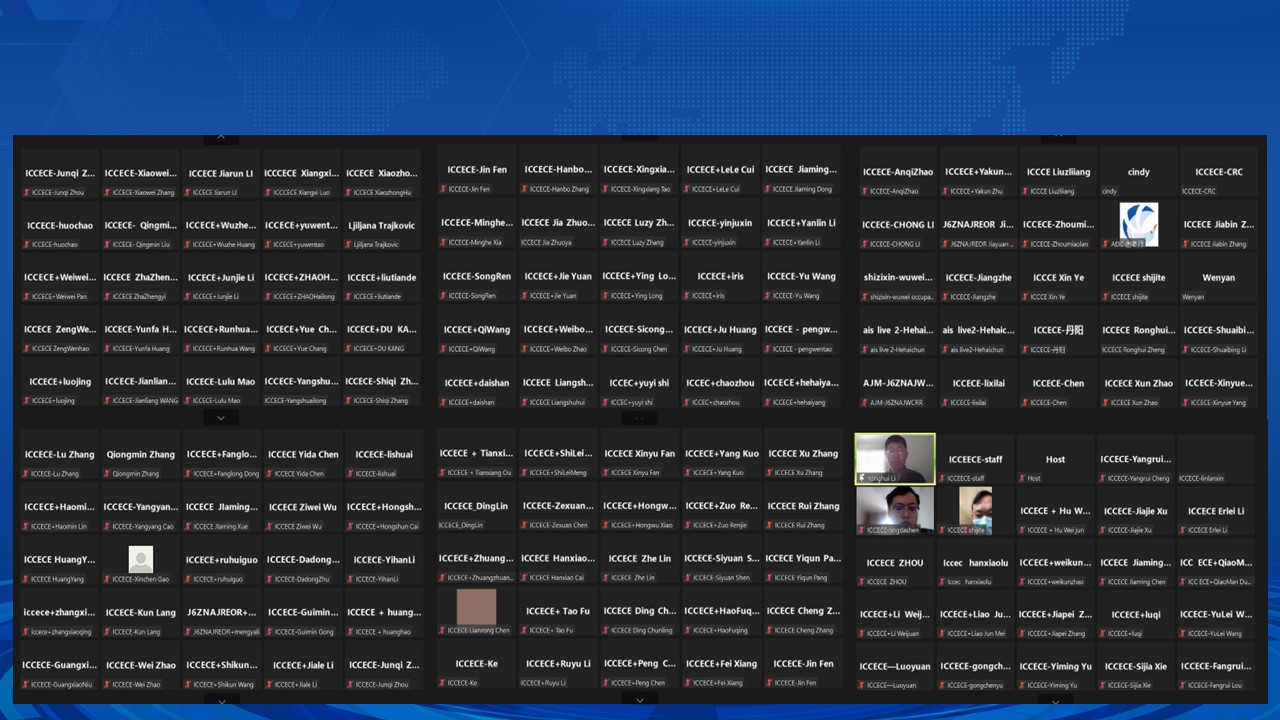
At the same time, We have invited conference chair IEEE Life Fellow Professor Ljiljana Trajkovic from Simon Fraser University, Canada and IEEE Fellow Professor Bo Ai from Beijing Jiaotong University to deliver an welcome speech at the plenary meeting.
| Welcome speech |
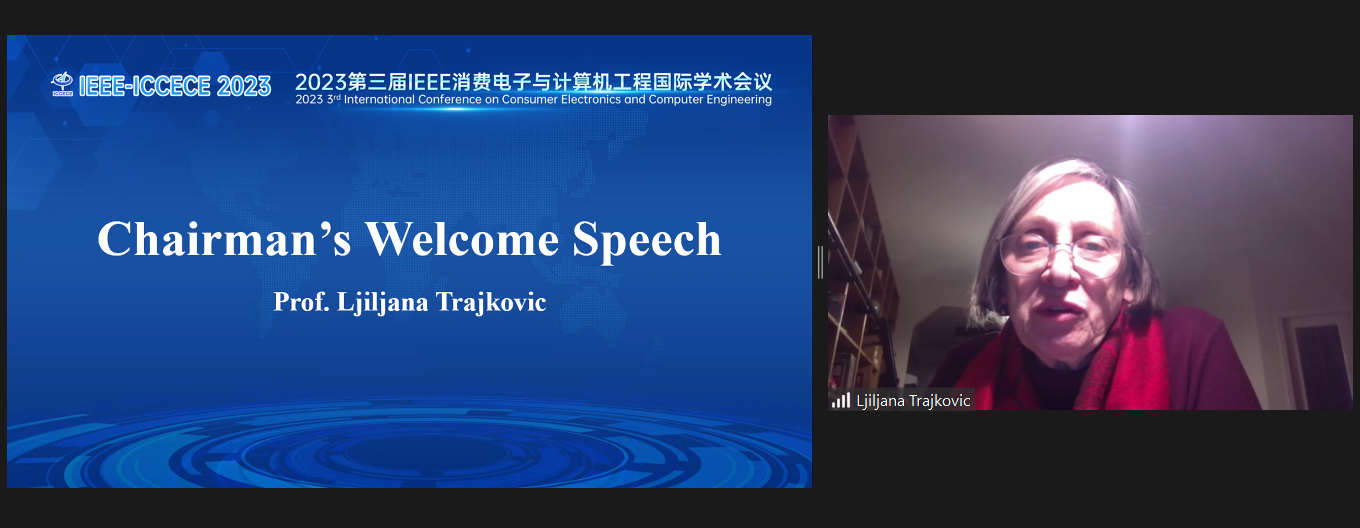
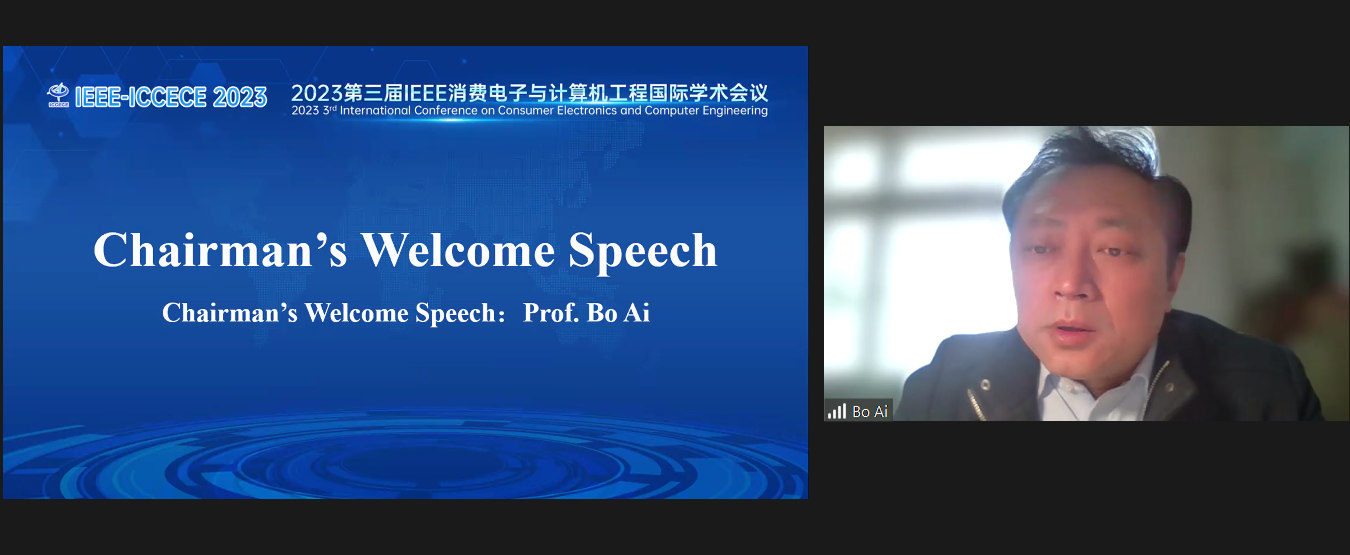
| Keynote Speakers | |
1. Prof. Ljiljana Trajkovic | Title: Machine Learning for Detecting Internet Traffic Anomalies Abstract: Border Gateway Protocol (BGP) enables the Internet data routing. BGP anomalies may affect the Internet connectivity and cause routing disconnections, route flaps, and oscillations. Hence, detection of anomalous BGP routing dynamics is a topic of great interest in cybersecurity. Various anomaly and intrusion detection approaches based on machine learning have been employed to analyze BGP update messages collected from RIPE and Route Views collection sites. Survey of supervised and semi-supervised machine learning algorithms for detecting BGP anomalies and intrusions is presented. Deep learning, broad learning, and gradient boosting decision tree algorithms are evaluated by creating models using collected datasets that contain Internet worms, power outages, and ransomware events. |
2. Prof. Bo Ai | Title: Feeder Communications For Future Integrated Networks Abstract: The integrated communication system has received increasing attention to establish a fully-connected world in the eras of beyond the fifth-generation wireless communication (B5G) and the sixthgeneration wireless communication (6G) systems, where a wide range of services with distinct requirements needs to be accommodated, covering distinct scenarios such as terrestrial, ocean, outer space and underwater. In this talk, we first present the idea of feeder communication, which aims to provide truly seamless and ubiquitous on-demand coverage for any human activity. Compared with the traditional integrated networks, the feeder communication focuses on the reliable data transmission over multiple propagation mediums such as outer space, stratosphere, troposphere, and underwater. Due to the significant differences of radio propagation characteristics in different mediums, feeder communication requires a large number of feeder nodes for inter-medium transmissions, a well-designed network structure, and intelligent wireless transmission and control schemes. The basic concepts, features, application scenarios, network architecture, and the corresponding wireless transmission technologies of feeder communication are presented with details. Finally, challenges and future directions are pointed out. |
3. Prof. Yonghui Li | Title: uRLLC for Industrial Internet Abstract: The world is currently witnessing the rise of many mission critical applications such as tele-surgery, intelligent transportation, industry automation, virtual reality and augmented reality, vehicular communications, etc. Some of these applications will be enabled by the fifth-generation of cellular networks (5G), which will provide the required ultra-reliable low latency communication (URLLC). However, guaranteeing these stringent reliability and end-to-end latency requirements continues to prove to be quite challenging, due to the significant shift in paradigms required in both theoretical fundamentals of wireless communications as well as design principles. In particular, a holistic framework that takes into account latency, reliability, availability, scalability, and decision-making under uncertainty is lacking. Addressing these challenges requires the development of new wireless technologies, underlying network protocols, and signal processing techniques. In this talk, we will present the key challenges and potential solutions for 5G and beyond 5G to support URLLC for industrial internet, in terms of error control coding improving reliability, channel access protocols for reducing latency, and multi-connectivity for improving network availability. |
4. Prof. Xinde Li | Title: Robot Occasion Cognition from person and place Abstract: With the advances of artificial intelligence, robots have been widely used in many service sectors and close to human life. However, constructing a harmonious and natural human-robot interaction environment puts forward high requirements for humanoid performance of robot. In this presentation, we first summarize the natural person and place in the robot interaction environment as the occasion, proposing the concept of robot occasion cognition. Then, according to the challenges of robot cognition for human and place in the occasion, I will report the recent researches about human identification and emotion recognition, place perception and understanding, in which we explore a new paradigm of robot occasion cognition towards various people and local conditions. Finally, I will give some prospects for the future progress of this topic. |
5. Prof. Qingliang Chen | Title:Domain-Level Pairwise Semantic Interaction for Aspect-Based Sentiment Classification Abstract: Aspect-based sentiment classification (ABSC) is a very challenging subtask of sentiment analysis (SA) and suffers badly from the class-imbalance. Existing methods only process sentences independently, without considering the domain-level relationship between sentences, and fail to provide effective solutions to the problem of class-imbalance. From an intuitive point of view, sentences in the same domain often have high-level semantic connections. The interaction of their high-level semantic features can force the model to produce better semantic representations, and find the similarities and nuances between sentences better. Driven by this idea, this talk will prepsent a plug-and-play Pairwise Semantic Interaction (PSI) module, which takes pairwise sentences as input, and obtains interactive information by learning the semantic vectors of the two sentences. Subsequently, different gates are generated to effectively highlight the key semantic features of each sentence. Finally, the adversarial interaction between the vectors is used to make the semantic representation of two sentences more distinguishable. Experimental results on four ABSC datasets show that, in most cases, PSI is superior to many competitive state-of-the-art baselines and can significantly alleviate the problem of class-imbalance |
5. Prof. Yi Fang | Title: Protograph LDPC Codes: State-of-the-Art and Future Challenges Abstract: Low-density parity-check (LDPC) codes have attracted much attention over the past two decades since they can asymptotically approach the Shannon capacity in a myriad of data transmission and storage scenarios. As a type of promising structured LDPC codes, the protograph LDPC codes not only inherit the advantage of conventional LDPC codes, i.e., excellent error performance, but also possess simple representations to realize fast encoding and efficient decoding. In this talk, we will first present the recent research progresses in protograph LDPC code design and analysis under different channel conditions, including the additive white Gaussian noise (AWGN) channels, fading channels, data-storage channels, and Poisson pulse-position modulation (PPM) channels. Afterwards, we will provide several valuable research challenges which have not been adequately addressed in the open literature, but deserve further investigation |
| Oral Presentation |
| Publication of IEEE-ICCECE 2023 (History) |
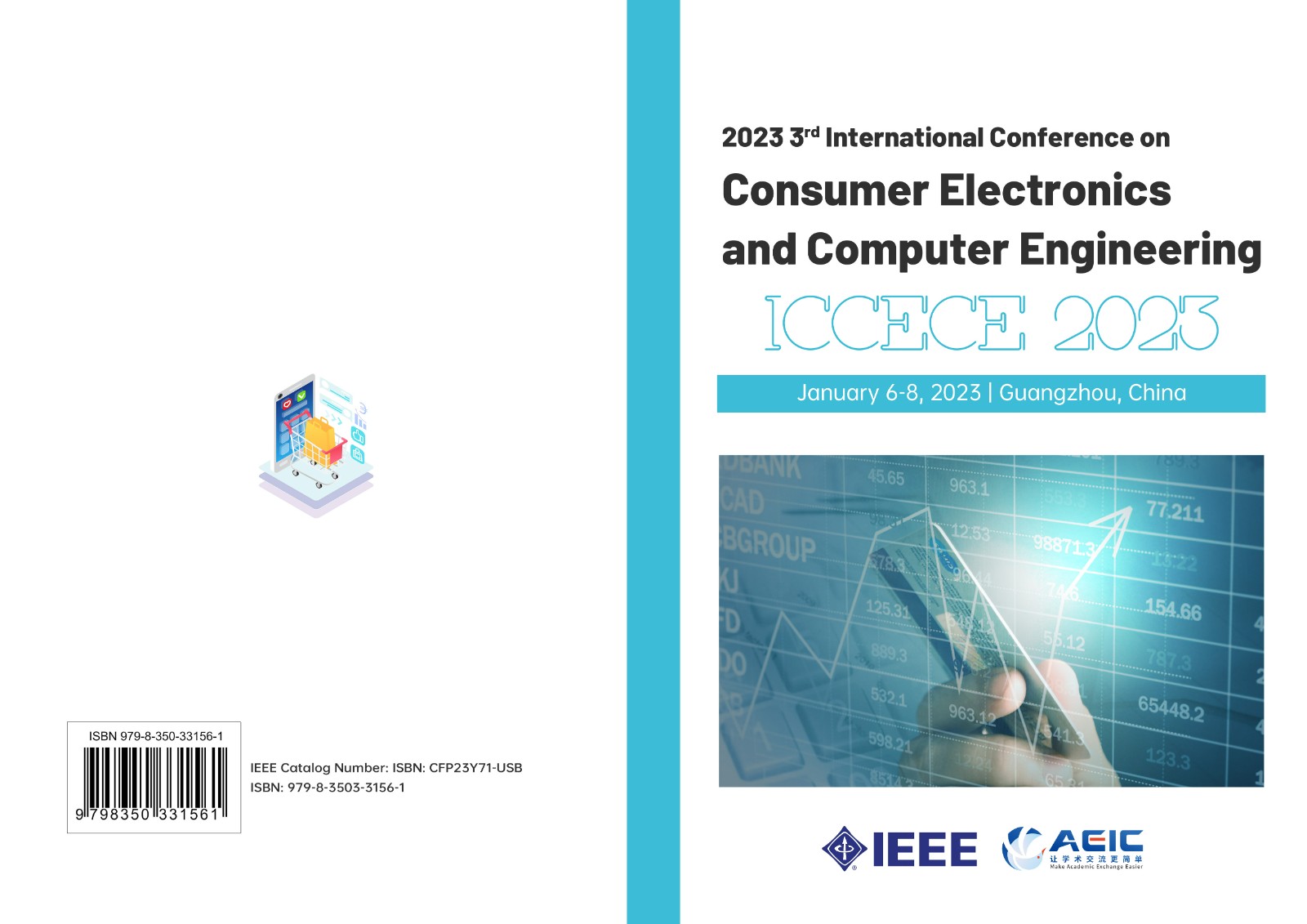 | ICCECE 2023 (ISBN: 978-1-6654-0886-8) | Issued date: Jan 20, 2021 Issued date: Feb 24, 2021 |
